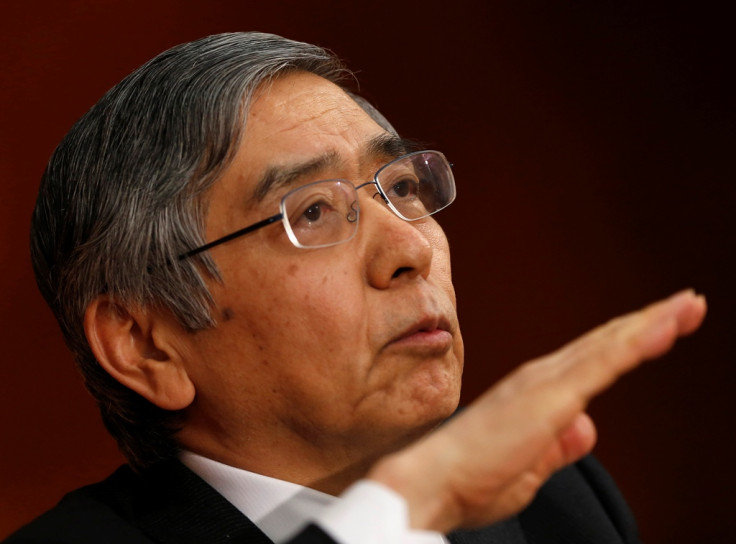Bank of Japan Chief Predicts 2% Inflation in Second Half of 2014 Fiscal Year

Bank of Japan Governor Haruhiko Kuroda said the world's third-largest economy would witness 2% inflation around the second half of fiscal 2014 through early fiscal 2015.
Meanwhile, Japanese Prime Minister Shinzo Abe said on Tuesday it was important for the government and the central bank to share a common understanding.
Abe, speaking in parliament, said the BOJ was taking appropriate steps to attain its 2% inflation target and that the nation was on its way out of deflation.
"Japan is making steady progress toward (achieving) 2% inflation," Kuroda told parliament, reported Reuters.
Japan's unemployment rate dropped to a six-year low in December 2013 just as inflation accelerated, government data showed last week, suggestive of a strongly recovering economy wherein Abe's efforts to end deflation were making headway.
Government data revealed that Japan's inflation accelerated to its highest rate in over five years in December.
Prices excluding volatile fresh-food costs climbed 1.3% on the year, beating expectations. Economists polled by The Wall Street Journal and the Nikkei newspaper forecast a 1.2% increase in consumer prices.
Prices including fresh food costs rose 1.6% on the year in December.
Consumer prices also increased for the whole of 2013, the first annual increase in five years. The core index for 2013 climbed 0.4% after a 0.1% fall in the preceding year.
Wage Hike
Both BOJ and Goldman Sachs have asked Japanese business leaders to increase wages, with the investment banking major warning that wages ought to increase for "Abenomics" to succeed.
Higher prices could erode household spending power in the world's third largest economy, especially if employers refuse to increase wages in the coming months.
A lower purchasing power would then impact consumer spending, threatening to disrupt Abe's efforts to pull the Japanese economy out of weak growth.
The BOJ introduced an intense burst of monetary stimulus in April 2013, promising to double base money through aggressive asset purchases to reach 2% inflation in about two years in an economy that has endured 15 years of deflation.
© Copyright IBTimes 2025. All rights reserved.






















